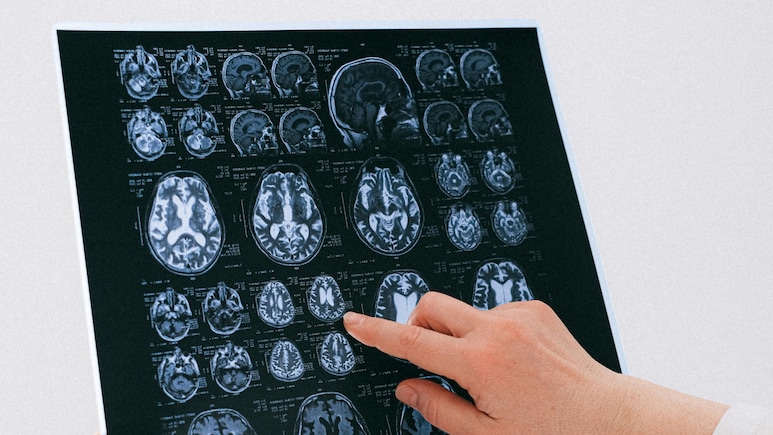
When we hear the word dementia, the first thing that comes to most people's minds is memory loss or forgetfulness. While it's true that cognitive decline is a hallmark symptom, dementia in its early stages can show up in ways that go far beyond struggling to remember where you left your keys or missing an appointment. Understanding these less obvious early signs is critical not just for diagnosis but also for timely intervention that can significantly improve quality of life.
Dementia is not a single disease but a collection of symptoms that affect mental abilities like thinking, reasoning, memory, and behaviour. It is caused by damage to brain cells due to various underlying conditions such as Alzheimer's disease, vascular dementia, Lewy body dementia, or frontotemporal dementia. The World Health Organization (WHO) estimates that over 55 million people worldwide live with dementia, with nearly 10 million new cases every year. In India alone, studies estimate that over 5 million people are living with dementia, and the numbers are expected to rise steeply due to aging population trends.
While memory loss is often the most talked-about symptom, the early signs can manifest in a variety of ways, many of which are not immediately linked to memory by laypersons or even healthcare providers.
Early signs of dementia beyond forgetfulness to watch out for
1. Mood and personality changes
One of the earliest and often overlooked signs of dementia is a shift in mood or personality. An individual who was once cheerful and outgoing may become unusually withdrawn, irritable, or even aggressive without clear cause. Studies show that depression and anxiety are common early warning signs of dementia, especially in Alzheimer's disease and frontotemporal dementia. Watch out for sudden mood swings, social withdrawal, increased irritability, unexplained episodes of crying, or a general loss of interest in previously enjoyed activities.
2. Disorientation to time and place
Getting lost in a familiar neighbourhood or confusion about the day, month, or year may not just be “senior moments.” These are red flags signalling early dementia. As dementia progresses, the brain's ability to process spatial and temporal information deteriorates. Look out for repeatedly asking where they are, difficulty finding the way home, or becoming confused about dates and appointments.
3. Difficulty performing familiar tasks
Tasks that once came naturally like cooking a simple meal, handling personal finances, or navigating the route to a nearby shop can suddenly become overwhelming or confusing. Watch out for struggling with managing household bills, inability to follow a recipe, or forgetting the steps involved in personal hygiene routines.
4. Changes in sleep patterns
Sleep disturbances, such as insomnia, excessive daytime sleepiness, or frequent waking up at night, can be early signs of dementia. A noticeable shift in sleep habits, sudden difficulty falling asleep, or persistent tiredness during the day without apparent reason could be a sign.
5. Poor judgment and decision-making
A person may start making unusually poor decisions, like giving away large sums of money to unknown callers or neglecting basic safety practices such as crossing streets carefully. Impulsive purchases, poor financial decisions, dressing inappropriately for the weather, or leaving the gas stove on.
6. Visual and spatial difficulties
Problems interpreting visual information can be an early sign of dementia, particularly in cases of posterior cortical atrophy, a variant of Alzheimer's. Damage to the occipital and parietal lobes can impair depth perception, colour discrimination, and ability to recognise objects. Difficulty judging distances, trouble reading, mistaking one object for another, or becoming unable to recognise familiar faces.
7. Physical symptoms
While dementia is primarily a cognitive condition, physical symptoms can emerge early, especially in Parkinson's disease dementia or Lewy body dementia. Neurological degeneration affects not only memory but also motor control. Trembling hands, slowed walking, stiffness, or difficulty with fine motor tasks could be signs of dementia.
8. Language and communication problems
Struggling to find the right words, repeating sentences, or difficulty in following or joining conversations can indicate early dementia. Difficulty in recalling common words, frequent pauses during conversation, repeating the same question or statement multiple times.
9. Withdrawal from social activities
Loss of empathy and motivation often cause individuals to disengage from social activities or hobbies they once enjoyed. Declining participation in family gatherings, reluctance to meet friends, or giving up on hobbies.
Dementia is far more complex than just forgetfulness or cognitive decline. Early detection of symptoms like mood changes, disorientation, poor judgment, and sleep disturbances can make a huge difference in timely medical intervention. For families, caregivers, and healthcare professionals, recognising these subtle yet impactful signs allows for early diagnosis and improved management, potentially slowing the progression of the disease.
Disclaimer: This content including advice provides generic information only. It is in no way a substitute for a qualified medical opinion. Always consult a specialist or your doctor for more information. NDTV does not claim responsibility for this information.
References
Dementia. World Health Organization (WHO). Published 2023.
Major Neurocognitive Disorder (Dementia). StatPearls, National Center for Biotechnology Information (NCBI). Published 2023.
Behavioural and Psychological Symptoms in Dementia. National Center for Biotechnology Information (NCBI). Published 2023.
Understanding the Prevalence and Early Detection of Dementia. All India Institute of Medical Sciences (AIIMS). Published 2022.
Detection and Diagnosis of Early Symptomatic Alzheimer's Disease. National Institute on Ageing. Published 2023.
Track Latest News Live on NDTV.com and get news updates from India and around the world

